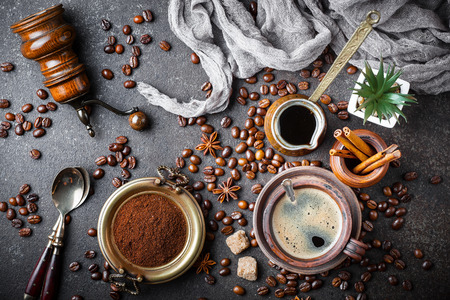Understanding Sustainability in British Coffee Culture
When you wander through the bustling streets of London or find yourself tucked into a cosy café in Edinburgh, its clear that coffee culture is woven into the very fabric of British daily life. Yet, beneath every pour-over and flat white, there’s an emerging narrative—one where sustainability takes centre stage. In Britain, sustainability isn’t just a trendy buzzword; it’s a reflection of values rooted in local communities, responsible consumption, and mindful innovation. Here, the idea of ‘sustainable materials’ is not merely about eco-friendly labels but about making conscious choices that respect both heritage and the environment. As you cradle your morning brew, consider how the cup, the machine, and even the humble filter paper contribute to this wider movement. British coffee rituals are evolving, embracing materials and practices that tread lightly on the earth while elevating the experience itself. This exploration invites us to look beyond the surface and ask: what does true sustainability mean for the equipment we use every day—and how do these choices shape our shared urban landscape?
Common Sustainable Materials in Coffee Equipment
When it comes to British coffee culture, sustainability is more than just a buzzword—its becoming the heart of the conversation. As more coffee aficionados across the UK seek eco-friendly choices, local makers and brands are responding with materials that tread lightly on the planet. Lets take a closer look at some of the most common sustainable materials found in British coffee equipment, and what makes them so special.
Recycled Metals: Giving Old Life New Purpose
Stainless steel and aluminium have long been staples in coffee gear, but now, recycled variants are leading the charge. Using recycled metals not only reduces waste but also cuts down on energy used in production—a win-win for both your morning brew and Mother Earth. Many British roasters and equipment makers proudly source recycled steel for espresso machines, grinders, and even reusable coffee cups.
Bamboo: The Fast-Growing Favourite
Bamboo’s rapid regrowth and minimal need for pesticides make it an obvious choice for eco-conscious Brits. From reusable stirrers to portable takeaway mugs with bamboo fibre lids, this material is as stylish as it is sustainable. It’s light, durable, and brings a touch of natural warmth to your daily cup—perfect for those who appreciate a bit of organic charm amidst the urban sprawl.
British-Sourced Ceramics: Homegrown Craftsmanship
The UK’s rich pottery tradition finds new life in locally sourced ceramic coffee cups and pour-over cones. Choosing British ceramics means fewer transport miles and supports local artisans, reducing your carbon footprint while adding an artisanal flourish to your home set-up. Plus, ceramics offer excellent heat retention and timeless style—a nod to British heritage with every sip.
Material Comparison Table
| Material | Eco Credentials | Common Uses |
|---|---|---|
| Recycled Metals | Reduces landfill waste; less energy-intensive than virgin metals | Espresso machines, grinders, reusable cups |
| Bamboo | Fast-growing; biodegradable; minimal chemicals needed | Stirrers, travel mug lids, handles |
| British Ceramics | Locally sourced; supports UK artisans; long lifespan | Cups, pour-over cones, teapots |
By choosing these materials, you’re not just making a statement about sustainability—you’re weaving yourself into the fabric of contemporary British coffee culture, where mindful choices meet everyday rituals.

3. Local Makers and Community-Focused Brands
When it comes to sustainability in British coffee equipment, there’s something quietly powerful about supporting local makers. Across the UK, a new wave of artisans and independent brands are redefining what it means to create with care—for both community and planet. These homegrown talents are not just crafting beautiful objects; they’re also weaving ethical values into every portafilter and pour-over stand. From the windswept coasts of Cornwall to the creative workshops tucked away in London’s railway arches, British makers like Made by Knock and Minor Figures are championing the use of responsibly sourced materials—think recycled steel, reclaimed wood, or even locally produced ceramics. By focusing on low-impact production methods and transparent supply chains, these brands build a sense of place into their wares. Supporting them isn’t simply about reducing environmental footprint; it’s about investing in a culture that values craftsmanship, community connections, and a slower, more mindful approach to daily rituals. So next time you’re choosing a grinder or filter holder, look for those little signs of local ingenuity: a Sheffield-forged handle, a Bristol-thrown cup, or packaging that whispers stories of British soil. This movement is shaping not only how we brew our coffee, but also how we see ourselves as part of a wider ecosystem—one espresso at a time.
4. Certifications and Standards to Watch For
When it comes to sustainable materials in British coffee equipment, knowing your certifications and standards is as important as knowing your single origin from your house blend. These marks are the quiet gatekeepers of eco-consciousness, giving you the confidence that what’s on your countertop isn’t just stylish, but also gentle on the planet. Let’s steep ourselves in the key British and European certifications, symbols, and standards that guarantee a genuine commitment to material sustainability.
British & European Sustainability Certifications
| Certification/Symbol | What It Means | Relevant Equipment Types |
|---|---|---|
| Forest Stewardship Council (FSC) | Guarantees wood is sourced from responsibly managed forests with respect for people and nature. | Wood handles, packaging, coffee stirrers |
| Programme for the Endorsement of Forest Certification (PEFC) | Ensures forest-based products are sustainably sourced and traceable throughout the supply chain. | Coffee machine panels, grinders with wooden parts |
| EU Ecolabel | A pan-European symbol for products meeting strict environmental criteria across their lifecycle. | Coffee machines, kettles, reusable cups |
| B Corp Certification | Recognises companies that balance profit with social and environmental performance. | Brands producing any type of coffee equipment |
| The Green Dot | Indicates producer responsibility for recycling packaging in Europe. | Coffee pods, packaging materials |
| WEEE Directive Mark | Shows electrical equipment can be recycled according to EU Waste Electrical and Electronic Equipment regulations. | Coffee machines, grinders, electric kettles |
| Cradle to Cradle Certified™ | Assesses products for safe, circular material use and responsible manufacturing. | Coffee accessories, select machine components |
The Importance of Recognising Standards in the Wild
For those of us wandering through independent coffee shops or browsing artisan marketplaces in London’s East End or Manchester’s Northern Quarter, these certifications are your compass. They help you distinguish between genuinely sustainable choices and mere greenwashing. Especially when British brands boast about local sourcing or “eco-friendly” materials, look for visible proof—these symbols are usually tucked away on labels or product descriptions.
Sustainable Choices: A Quick Checklist for Brits
- Check for FSC or PEFC when buying anything wooden—think tampers or portafilter handles.
- If it’s plastic or composite, ask if it’s recycled or certified by the EU Ecolabel.
- Look out for WEEE marks on electronics—a must for responsible disposal and recycling.
- B Corp brands often go beyond materials—they care about community impact too.
- The Green Dot is especially common on packaging—an easy win if you’re trying to cut waste at home or work.
The Local Angle: Why It Matters in Britain Today
Sustainability isn’t just a buzzword; it’s woven into the fabric of British urban life—from Brighton’s ethical cafés to Glasgow’s zero-waste collectives. Choosing coffee equipment backed by these certifications means supporting a movement that values longevity over landfill. Next time you’re after a new French press or an espresso machine upgrade, keep these standards close—your brew will taste better knowing you’ve made a thoughtful choice for both city and countryside alike.
5. Practical Tips for Eco-Minded Coffee Lovers
In the heart of a bustling British city, where space is at a premium and style is never compromised, making sustainable choices with your coffee gear can feel like threading the eye of a needle. But with a dash of know-how and a sprinkle of intention, you can curate an eco-friendly coffee ritual that sits beautifully in your London flat and delivers on flavour every time.
Choose Timeless Over Trendy
When selecting coffee equipment, opt for designs that marry durability with classic British aesthetics—think brushed stainless steel French presses or ceramic pour-overs from local artisans. Steer clear of short-lived fads and instead invest in pieces that will age gracefully alongside your morning routine.
Mind the Materials
Look for gear made from recycled glass, bamboo, responsibly sourced wood, or stainless steel—materials celebrated not just for their green credentials but also their ability to blend seamlessly with any interior. Avoid plastics where possible; even compostable versions often struggle to break down properly in UK waste streams.
Support Local Makers
Britain boasts a thriving community of small-batch makers crafting sustainable coffee accessories. Scour neighbourhood markets or online collectives for hand-thrown mugs from Cornish potters or upcycled espresso tampers from Manchester workshops. Supporting local not only reduces transport emissions but also adds a unique story to your kitchen shelf.
Care Is Key
Maintaining your kit well is as vital as choosing it wisely. Regularly descale kettles with natural vinegar solutions, hand-wash wooden handles to prevent splitting, and store your equipment out of direct sunlight to prolong its life—all without marring your minimalist aesthetic.
Savour Sustainability, One Brew at a Time
Eco-friendly living isn’t about sacrifice—it’s about savouring the ritual and making mindful swaps that suit both your palette and your postcode. With these practical tips, you can enjoy your daily cup knowing you’re treading lightly on British soil—and looking effortlessly stylish while you do it.
6. The Future of Sustainable Coffee Equipment in the UK
Peering ahead, Britain’s coffee landscape is quietly shifting beneath our feet. As we wander through the cobbled streets of London or duck into a snug Mancunian café, it’s clear that sustainable materials are no longer just a buzzword—they’re becoming a movement. The rise of plant-based plastics, homegrown recycled steel, and even upcycled ceramics hints at a future where every espresso shot comes with a lighter footprint. Local makers and indie roasters are collaborating on kit swaps, repair cafés, and circular economy schemes, making sustainability not just an environmental choice but also a community affair. Industry bodies like the British Coffee Association are championing green initiatives, while grassroots collectives host workshops on mending old French presses or sourcing zero-waste filters. Even major manufacturers are beginning to listen, experimenting with modular designs and transparent supply chains that invite scrutiny—and trust—from eco-conscious Brits. In this evolving scene, the next generation of coffee lovers isn’t just asking for ethically sourced beans; they want kettles crafted from reclaimed copper and grinders built to last decades. It’s a city-wide conversation, from Brighton lanes to Glasgow’s hidden gems: how can we make our daily brew truly sustainable? With innovation percolating and local passion brewing stronger than ever, the future of sustainable coffee equipment in the UK feels as vibrant—and promising—as your favourite flat white.


